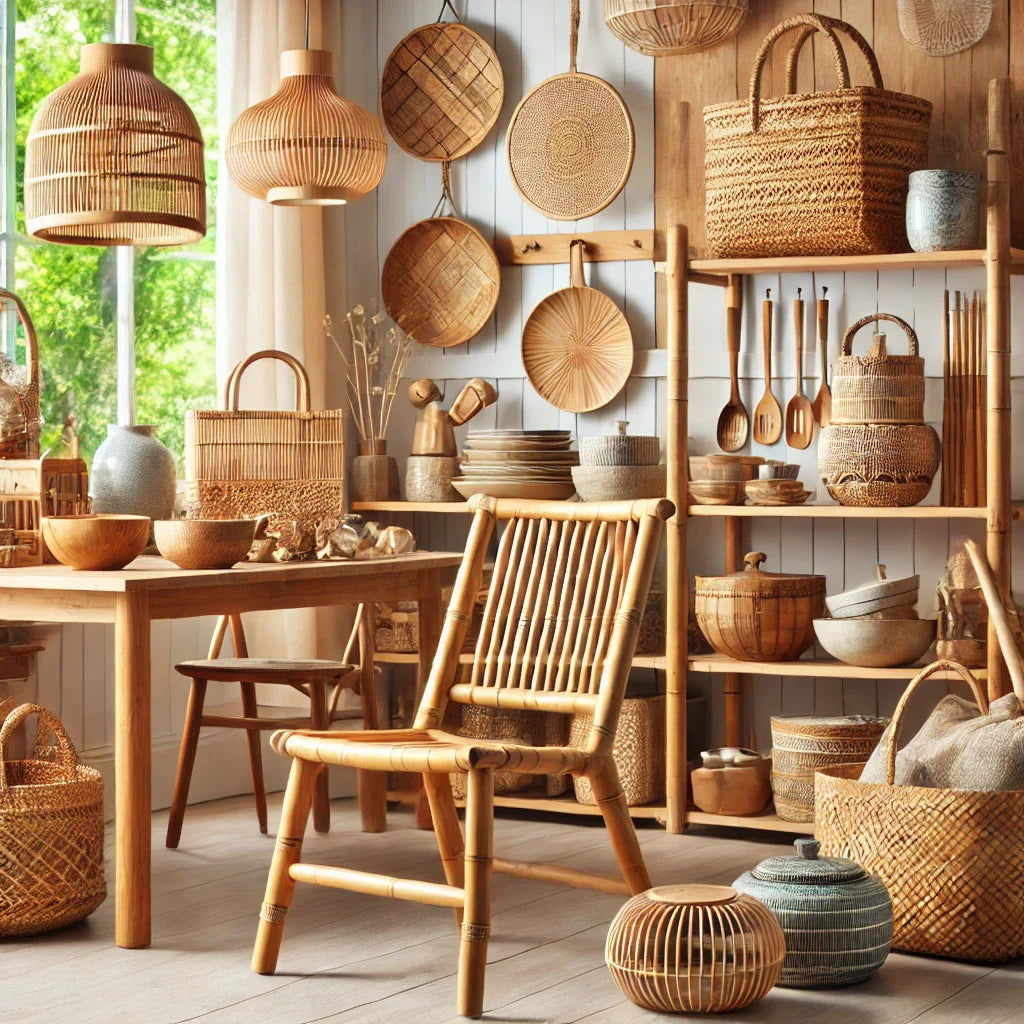
Why Bamboo Products are a Wise Investment
Share
Why Are Bamboo Products Expensive & Why Are They Cost-Effective in the Long Run?
Bamboo products have gained immense popularity in recent years due to their sustainability, durability, and eco-friendly appeal. However, one common question that arises is—why do bamboo products often come with a higher price tag? More importantly, why do they prove to be a cost-effective choice in the long run? Let’s explore the reasons behind their pricing and long-term benefits.
Why Are Bamboo Products Expensive?
-
Sustainable Harvesting & Processing
Unlike conventional materials, bamboo is harvested using sustainable practices. Ethical sourcing ensures minimal impact on the environment but often involves additional labor costs. The harvesting process also requires skilled artisans to select and treat the best-quality bamboo for production. -
Complex Manufacturing Process
Bamboo undergoes various treatments to enhance its durability, such as curing, drying, and anti-pest treatment. This meticulous process ensures longevity and quality but adds to the overall cost of production. -
Handcrafted by Skilled Artisans
Many bamboo products are handcrafted, preserving traditional craftsmanship. This artisan-based production method results in unique, high-quality items but requires more time and effort compared to mass-produced plastic or metal alternatives. -
Limited Large-Scale Production
Unlike plastic and synthetic materials, which can be mass-produced in automated factories, bamboo-based products often involve small-scale manufacturing. This limits supply, increasing costs compared to machine-made alternatives. -
Eco-Friendly Treatment & Certification Costs
Bamboo products are often certified for their environmental impact, requiring rigorous testing and adherence to sustainability standards. These certifications, such as organic or FSC (Forest Stewardship Council) approvals, add to the overall cost but ensure authenticity and eco-friendliness. -
Durability & Longevity
High-quality bamboo products are built to last, with some treated varieties being as strong as hardwood. This longevity reduces replacement frequency, but the initial investment may be higher compared to disposable alternatives.
Why Are Bamboo Products Cost-Effective in the Long Run?
-
Durability Reduces Replacement Costs
Unlike plastic or low-grade wood, bamboo is naturally strong and resistant to wear and tear. Investing in bamboo furniture, home décor, or kitchenware means fewer replacements over time, making it a smart long-term investment. -
Low Maintenance & High Resilience
Bamboo requires minimal maintenance. It is resistant to pests, moisture, and warping, making it a more reliable material compared to cheaper alternatives that degrade quickly. -
Energy & Water Savings
Bamboo textile products, such as clothing and towels, require less water and energy to wash, leading to lower utility bills over time. Additionally, bamboo’s natural antibacterial properties reduce the need for chemical treatments or frequent washing. -
Eco-Friendly & Sustainable Choice
By choosing bamboo, consumers contribute to reducing deforestation, plastic pollution, and carbon footprint. While this may not directly impact immediate finances, it ensures long-term environmental benefits, which ultimately reduce costs related to environmental degradation. -
Multi-Purpose Utility
Many bamboo products serve multiple functions. For instance, a high-quality bamboo storage basket can double as home décor and an organizational tool, reducing the need to purchase separate items. -
Resale & Upcycling Value
Bamboo furniture and décor pieces retain value over time and can often be resold or upcycled into new products, unlike plastic, which quickly deteriorates and ends up as waste.
Final Thoughts
While bamboo products may appear expensive initially, they offer substantial long-term savings through durability, sustainability, and low maintenance costs. Investing in bamboo is not just a financial decision but also an eco-conscious step towards a greener future. Whether it’s home décor, furniture, or daily-use items, bamboo proves that quality and sustainability can go hand in hand, making it a worthwhile investment for both your wallet and the planet.
Looking for premium handcrafted bamboo products? Explore Silpakarman’s exclusive range of bamboo home décor, kitchenware, and utility products designed for longevity and style!
